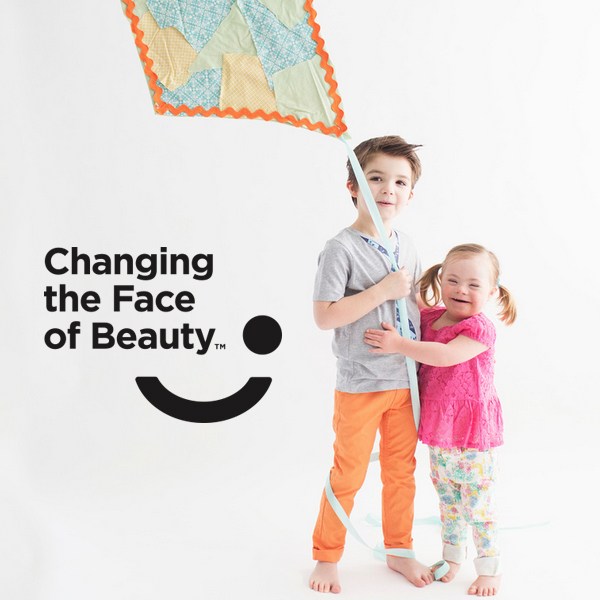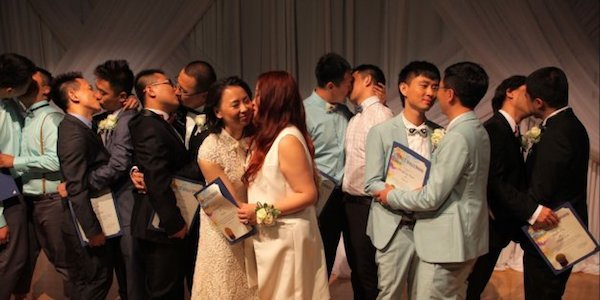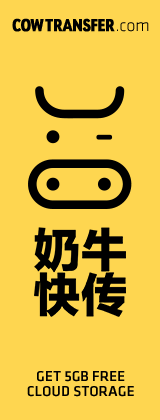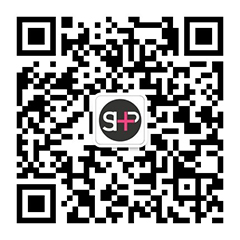中国的残疾人日子并不好过。2014年万古杂志(aeon magazine)的一篇报道指出,中国残疾人相关的设施不足,社会普遍对残疾人加以诟病,这导致很多人被边缘化和虐待,尤其是除了一线城市以外的地方尤为明显。
People with disabilities have it particularly tough in China. Aeon magazine’s 2014 report paints a bleak picture of hopelessly inadequate facilities and endemic social stigma, leading to swathes of marginalized and abused people, particularly outside the tier one cities.

权鹏是一个年轻的探险家,14岁时胸部以下全部瘫痪,现如今他凭着双臂和一把轮椅,畅游中国,他的行动把残疾人推到了大众瞩目的焦点。上个月,飞猪旅行(阿里旅行)携手上海文明广告公司,把他的故事做成了广告。让一位残疾人担任广告主角,可谓是异乎寻常的大胆之举,中国广告一般都不会触碰这块禁地。
Young adventurer Quan Peng, paralysed from the chest down since the age of 14, recently cast a spotlight on the issue while traveling across China powered only by his own two arms and a wheelchair. Last month, the odyssey became the focus of a film for Alibaba Travel created by Shanghai agency, Civilization. In daring to cast a disabled person in a lead role, the spot is an anomaly that highlights a lingering taboo around disability in Chinese advertising.
不论世界任何一个地方,大家都一致认为不论是广告还是大众媒体,残疾人的声音都没有得到足够的重视。
No matter where in the world, few would disagree that disabled people are underrepresented in advertising and across the wider media.
然而在西方,情况近年来已有所改善,一系列高调的宣传接踵而至。最好的例子就是2012年和2016年两届残奥会的宣传片。2012年,4Creative打造了《Meet The Superhumans》,用于Channel 4的残奥会报道,2016年里约残奥会又在此基础上,打造了备受欢迎的宣传片《We’re The Superhumans》。
In the West, however, the situation has improved in recent years with a series of high profile campaigns. The best examples are bookended by films made to promote the Paralympic Games in 2012 and 2016 respectively. In 2012, 4Creative created a thumping spot “Meet The Superhumans” to support Channel 4’s coverage of the Games, and built upon the concept for Rio last year with another widely acclaimed film “We’re The Superhumans”.
Meet the Superhumans
而在这中间,还有一些备受瞩目的广告,比如健力士打造了《Friendship》广告,讲述的是五个健全人坐在轮椅上,陪着一个残疾朋友打篮球的故事,另外,还有家电品牌Swiffer打造的《The Rukavina Family》广告,被《广告周刊》(Adweek)评选为“有史以来最具包容性的广告”,讲述是一个独臂白人男子为黑人妻子和混血儿子打扫房间的故事。
In between there have been notable spots like Guinness’ “Friendship”, in which five abled-bodied men play wheelchair basketball with a disabled friend and household cleaning product brand Swiffer’s “The Rukavina Family”, dubbed by ADWEEK as the “Most Inclusive Ad Ever”, in which a white man with part of one arm missing cleans the house for his black wife and mixed race son.
Swiffer The Rukavina Family
2015超级碗广告中,有三部都是以残疾人为主角,如,丰田凯美瑞汽车以美国残奥会滑雪冠军Amy Purdy为主角,还有微软技术为Braylon O’Neill打造假腿的感人故事。就在同一年,其他类似主题广告相继上演,比如面巾纸品牌舒洁的暖心广告《Unlikely Best Friends》,讲述的是一个腰部以下瘫痪的男人和一只有残疾的小狗之间的深厚感情,Xfinity则用动画打造了一个双目失明的小女孩的想象世界的故事。
In 2015, three of the Super Bowl ads that year featured people with disabilities in the central roles, from the Toyota Camry with US Paralympic Snowboarder, Amy Purdy, to the touching story of Braylon O’Neill who’s prosthetic legs were built with Microsoft technology. In the same year, Kleenex delivered a certified heart warmer with “Unlikely Best Friends”, telling of the bond between a man paralysed from the waist down and his disabled dog, while Xfinity delivered a charming animated rendition of the iconic story as told from the imagination of a blind girl.
健力士《Friendship》| Guinness Friendship
无疑,社会对残疾人的歧视和诟病是大家都不想看到的,人们的态度越早改变越好。广告对改变人们的观念发挥着至关重要的作用。广告可以很巧妙地展现出它的包容性,可以渐渐地把一些原本被当做“不正常”的事物变得司空见惯,也可以渐渐消除人们对残疾人的成见。而且看到这些广告的残疾人也会变得更加自信,更有自尊。
Clearly discrimination and stigma around disability is undesirable in any society. The sooner attitudes change, the better. Advertising has an important role to play in the process. Handled smartly, inclusive content can help normalise situations that are commonly regarded as “abnormal” and gradually dispel the idea that people with disabilities are defined by their condition. Not to mention the boost in confidence and self-esteem that more exposure can give to disabled viewers.
1984年,洛杉矶奥运会推出了几支以残疾人为主题的广告,而此后的发展步伐却很缓慢,之前的一些广告,要么把残疾人的悲痛夸张放大,要么就是把他们刻画成超级英雄,而讲述残疾人的广告也都是为了突显残疾本身。
It has been a slow evolution since the first ads featuring disability were screened during the 1984 Los Angeles Olympics. Previously, there had been the tendency to dramatise disabled people into either suffering sad cases or superheroes. The only commercials featuring disability were those about disability itself.
2015超级碗丰田凯美瑞广告 | 2015 Super Bowl Toyota Camry Ad
近年来,广告人已经意识到了这一点,已有所改观。现在,广告只是把残疾当做是刻画复杂真实生活的一个细节,而不是单纯的为了突显残疾。全麦饼干品牌Honey Maid推出的《This Is Wholesome Campaign》广告很好地印证了这一点,其中母亲身患残疾这件事跟故事本身毫不相关。
Ad makers have become more sensitive to the subtleties in recent years. Increasingly, the disability itself is not the central message of the ad, merely a detail in a complex portrayal of real life. Honey Maid’s “This Is Wholesome Campaign” provides a perfect example, where the mother’s disability is irrelevant to the story.
舒洁《Unlikely Best Friends》| Kleenex Unlikely Best Friends
但是有一些原本出于好意的广告似乎却跑偏了。2016超级碗中,盛世长城广告公司(Saatchi & Saatchi)为CoorDown制作的《How Do You See Me》广告,就是一支极具包容性的广告,ADCOLOR Awards (广告行业推广广告多样化与多元文化的顶级盛会活动)把“年度广告大奖”颁给了这部作品。广告中,我们看到的是身体健全的女演员奥利维亚·维尔德,如何积极享受生活的故事,而这背后的独白却来自一个患有唐氏综合症的女性。
Arguably, some well-intentioned campaigns are still missing the point. It would be easy to assume “How Do You See Me,” a Super Bowl 2016 ad by Saatchi & Saatchi for CoorDown was a fine example of inclusive advertising. Certainly that was the opinion of the ADCOLOR Awards, the industry’s leading show for work that promotes diversity and multiculturalism, where it won “Ad Of The Year”. In it we see able-bodied actress Olivia Wilde enjoying a full and active life, only to discover that the voice over belongs to a woman with Down’s Syndrome.
How Do You See Me
很多博主和评论家都认为这则广告过度突显了女性的残疾这一点,认为她面对自己想象的健全人,有着深深地自卑情结。一些持反对意见的人将其称为“健全至上主义”- 人们认为健全是“正常的”,不健全的人都是低人一等。广告创意总监Josh Loebner在博客“广告与残疾” (“Advertising and Disability”)一文中写道,“如果广告支持种族平等,那为什么一个有色人种看镜子里的自己时,出现的是一个白人,这有道理吗?……那如果广告是为了宣传轮椅通行无障碍的主题的话,那是不是坐轮椅的人,看到镜子里的自己出现的反而是一个可以站立起来的人?”
However, numerous bloggers and commentators criticised the spot for essentially presenting her as inferior to the able-bodied person she imagines. This is an example of what objectors call, “ableism”, a belief in a world in which able is the norm and anything else is inferior. Josh Loebner, a advertising creative director and the writer behind the blog “Advertising and Disability”, explains “If the ad were supporting racial equality, would it make sense if a person of color looking in a mirror saw a white person?…What if the ad was to advocate for greater wheelchair accessibility?…Should a person in a wheelchair be seen looking in the mirror and their reflection is of someone standing up?
 Changing the Face of Beauty
Changing the Face of Beauty
西方广告越来越包容,一定程度上是由于少数派的积极推动,再加上大众社会的意识越来越强。诸如Changing the Face of Beauty这样的广告团体也在积极发挥作用,让广告公司把残疾人融入到广告中。当然也有一些商业角度的担忧,要让观众和品牌建立起联系,尤其是要收买那些千禧一代,他们非常愿意在网上分享那些可以打动他们的内容,愿意点赞,愿意转发。
The increasing prevalence of inclusive ads in the West is partly driven by a greater minority voice, combined with growing social awareness. Campaign groups like “Changing the Face of Beauty” are helping to push agencies to include people with disability in their campaigns. There are also purely commercial concerns, like the need to forge emotional connections to give brands an edge among overwhelming choice, particularly with open-minded Millennials that share, repost and ‘like’ the online content that moves them.
中国广告没有紧随其后其实也不足为奇,因为中国广告市场规模巨大却又难以预测,如果把残疾作为主题的话,未免是一种冒险的举动。中国现代社会跟欧美大都市不一样,中国人对民族多样性还有少数民族以及社会外围人物的态度没那么开明。所以广告自然而然就是为了博得观众的喜爱。
We shouldn’t be surprised that China’s advertising industry has not yet followed suit. Disability is a particularly risky subject for an industry that is plagued by fear over the tastes of the huge and unpredictable market. Unlike cosmopolitan hubs in Europe and the US, modern Chinese society is not known for its diversity or enlightened attitudes to minorities and social outliers. The industry’s output can’t help but reflect the desires and aspirations of the society that it aims to appeal to.
 2015年,阿里巴巴赞助了7对同性夫妻在加州西好莱坞喜结连理 | In 2015, Alibaba sponsored seven Chinese same-sex couples to get married in West Hollywood, California
2015年,阿里巴巴赞助了7对同性夫妻在加州西好莱坞喜结连理 | In 2015, Alibaba sponsored seven Chinese same-sex couples to get married in West Hollywood, California
诚然,我们已经看到了一些积极趋势,就比如说阿里巴巴LGBT友好宣传活动,还有多芬广告也体现出对不同身材和发色的尊重。但是目前来看,残疾的主题似乎还是无人涉足之地。
There have been positive steps forward, like LGBT-friendly campaigns for Alibaba and brands like Dove encouraging diversity in body shape and hair colour. As yet, disability has remained a taboo too far.
然而,这也给创意广告公司提供了先机,大胆迈出这一步势必带来一些好处。没有太多主题能像对残疾人的支持这样的话题更能够撼动人心,让人们打破固有的成见和观念。甚至一些愤世嫉俗的人也会觉得这样新潮的广告理念也大有获奖的潜质。虽然宣扬残疾这样的主题会遭到一些反对的声音,但是各大品牌也可以效仿Honey Maid,把坏事变成好事。
Herein lies the opportunity for creative agencies. Bravery will bring benefits. Few subjects will shatter preconceptions and shake audiences from their stupor than powerful campaigns in support of people with disability. A more cynical person would also point to the award-winning potential in pioneering advertising promoting enlightened thinking around the issue. Even if the campaign is met with disapproval, brands can follow the lead of Honey Maid and turn it to their advantage.
Honey Maid《This Is Wholesome》广告虽然最初激起民愤,但是最终却将其转化成传达爱意的信息,赢得了观众的赞叹。| Honey Maid turned hundreds of hate-filled responses to its “This Is Wholesome” campaign into a message of love that ultimately won more admirers.
此外,中国的残疾人有8300万,这也是一块有待开发的市场。
Brands meanwhile may also consider the potential in an untapped market of 83 million disabled people in China.
飞猪旅行广告赢得了170万点击量,转发和好评达到上千条,可谓是让大家目睹了残疾主题广告的潜力所在。但是,正如同广告中的权鹏从北京出发跋涉万里一样,残疾主题的广告也有很长的路要走。
Alibaba Travel’s film has already given us a glimpse of the potential, receiving 1.7 million views and thousands of positive retweets and comments. However, like Quan Peng when he set off from Beijing, the industry has a long journey ahead.




 BAM Music Library Brings Edgy, Indie Sounds to Chinese Creatives
BAM Music Library Brings Edgy, Indie Sounds to Chinese Creatives
